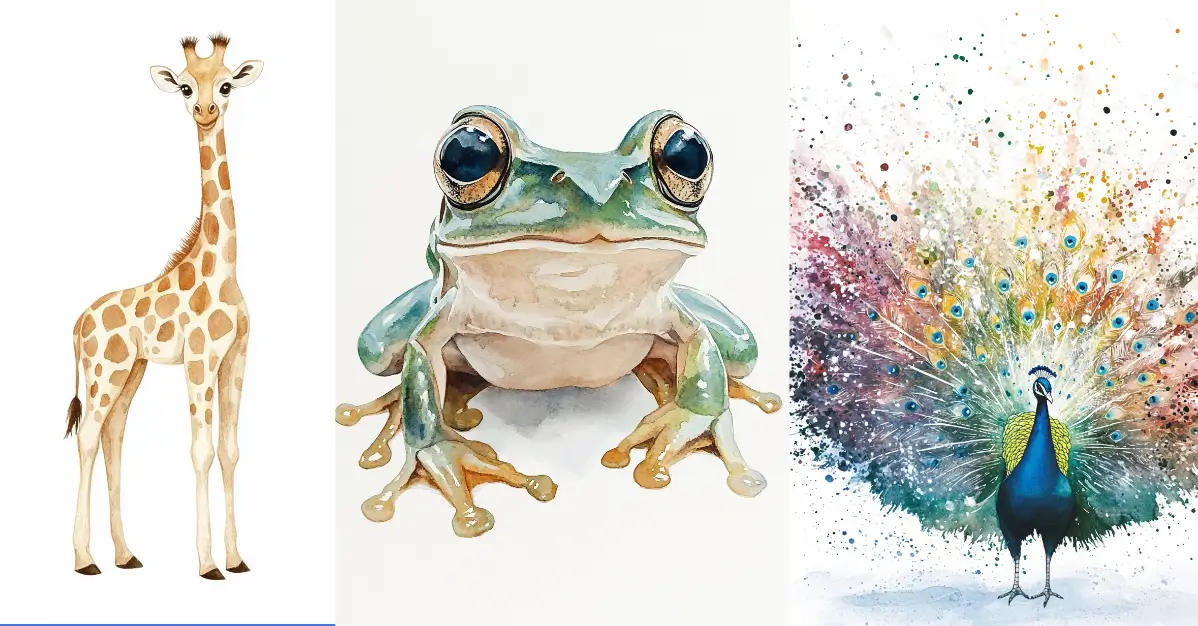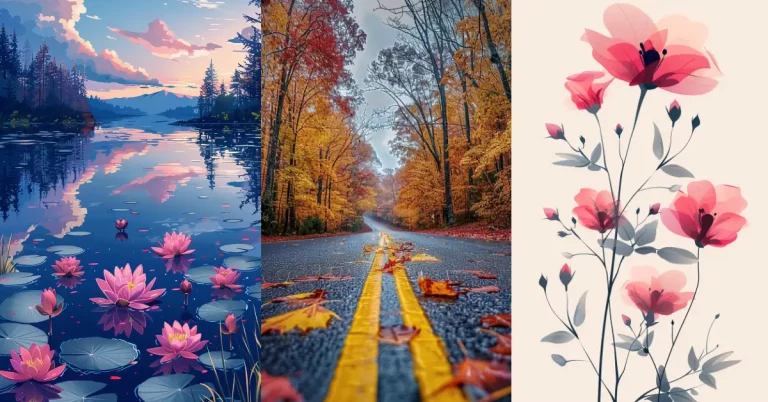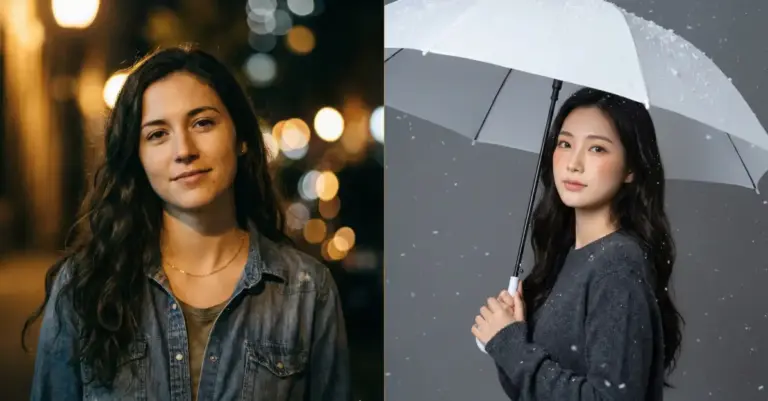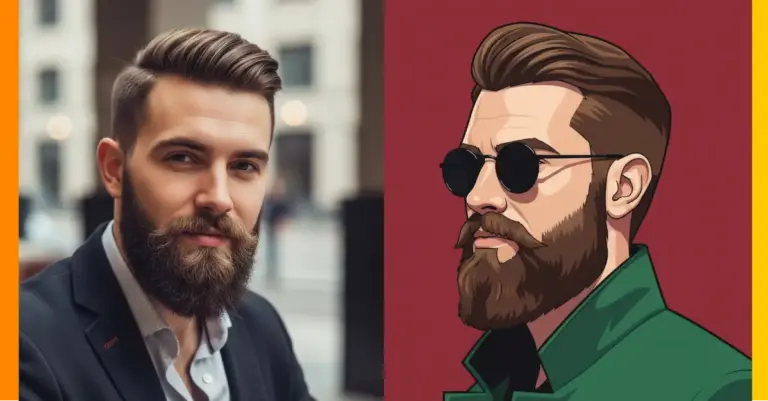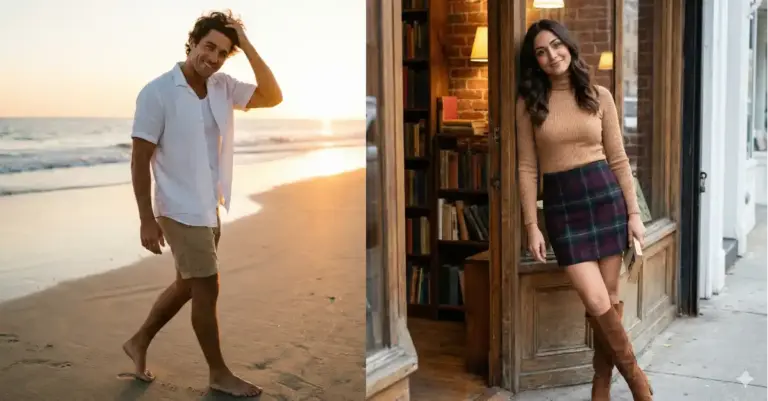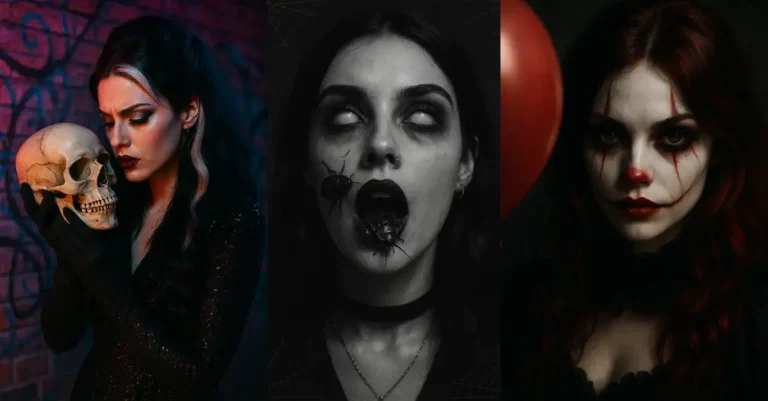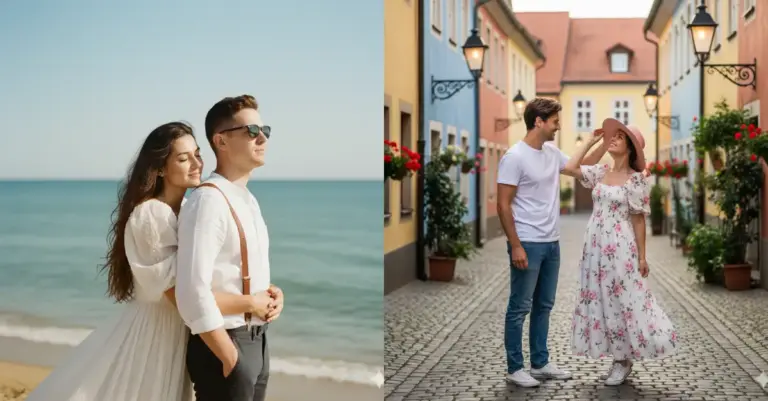Midjourney Prompts for Watercolor Animals
I love how watercolor paintings capture animals – there’s something special about seeing a fox or butterfly come to life through flowing, transparent colors. When I use Midjourney to create watercolor style animal art, I found that getting the prompts right made all the difference.
Here, I’m sharing what worked best for me, along with 25 proven prompts you can use right away.
Create Base Prompt
After trying many different formats, I’ve found that a well-structured base prompt consistently produces the good watercolor animal artwork in Midjourney. Here’s the base prompt I use:
Watercolor painting of a [animal with details], soft washes of color, plain white background, full body
Let’s look at each part and why it matters:
Watercolor painting of a
This directly tells Midjourney the medium we want. Being specific about the art form helps avoid mixed media results or digital art styles that don’t capture true watercolor qualities.
[animal with details]
This is where you’ll add your specific animal and its characteristics. For example: “regal lion with a flowing mane” or “curious red fox with a bushy tail”. Notice how each description includes:
- A defining adjective (regal, curious)
- The animal name (lion, fox)
- A distinctive feature (flowing mane, bushy tail)
soft washes of color
This phrase helps create that authentic watercolor look with gentle color transitions. It prevents harsh lines or too much digital precision that would make the artwork look less natural.
plain white background
A white background is crucial – it mimics the white paper used in traditional watercolor painting and makes the animal stand out. It also gives the colors room to shine without competing with background elements.
full body
This ensures you get the complete animal rather than just a portrait or partial view. It’s particularly helpful when you want to capture distinctive features like a fox’s tail or a giraffe’s long neck.
When you use this base prompt structure, you’re giving Midjourney clear instructions about:
- The art style you want
- The subject matter
- The technique to use
- The composition
- The framing
25 Example Prompts Showcase
These 25 example prompts with different types of animals.
Watercolor painting of a regal lion with a flowing mane, soft washes of color, plain white background, full body –ar 3:4 –v 6.1
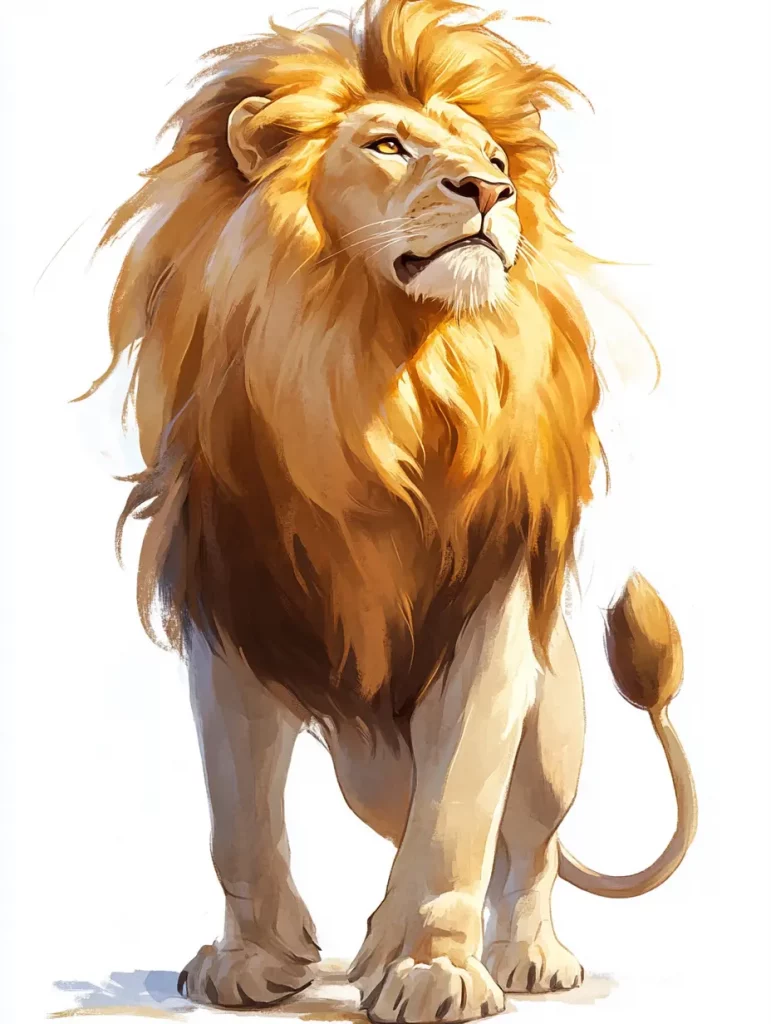
Watercolor painting of a crawling ladybug with distinct spots, soft washes of color, plain white background, full body –ar 3:4 –v 6.1
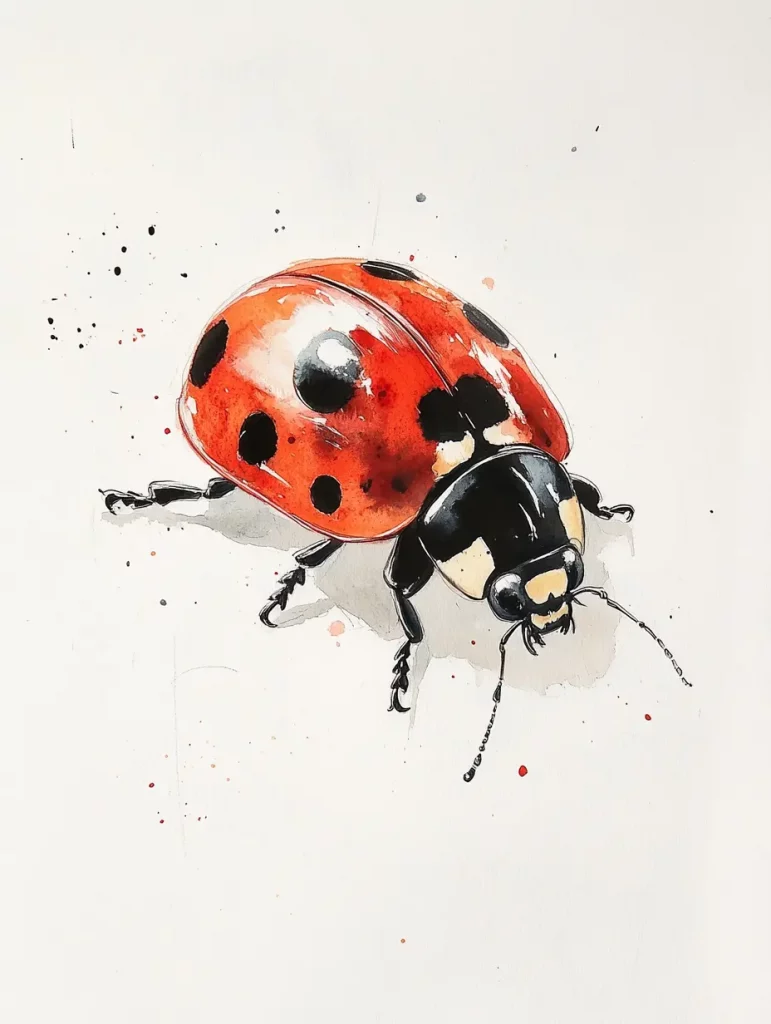
Watercolor painting of a gentle giraffe with long eyelashes, soft washes of color, plain white background, full body –ar 3:4 –v 6.1
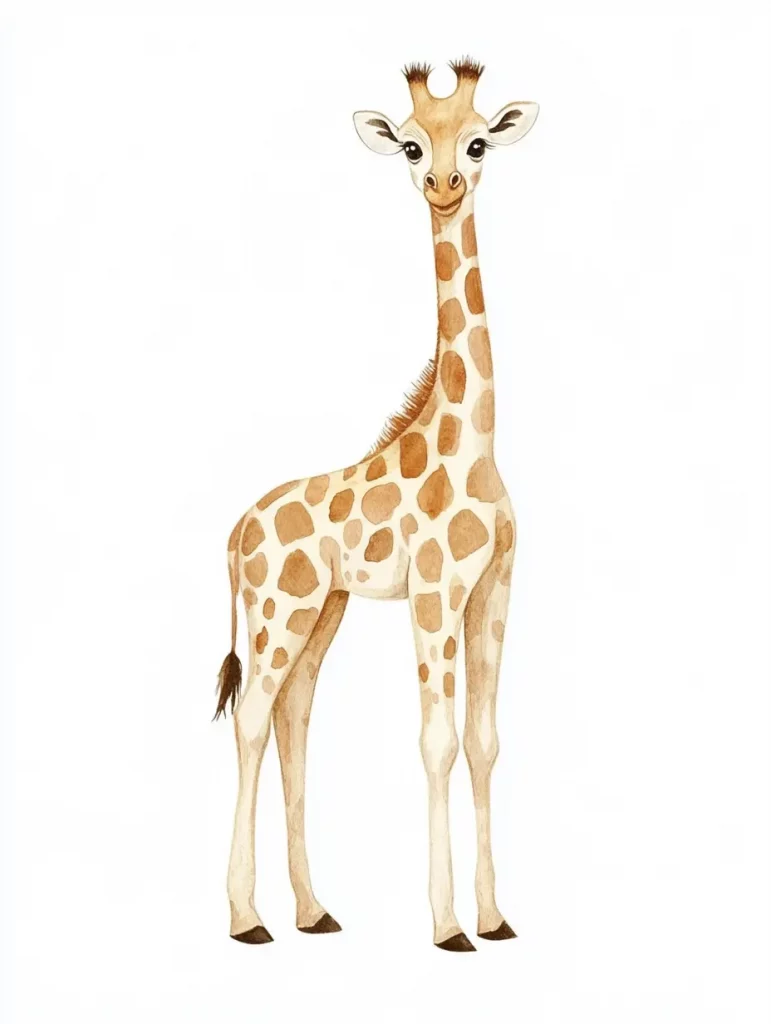
Watercolor painting of a soaring bald eagle with outstretched wings, soft washes of color, plain white background, full body –ar 3:4 –v 6.1
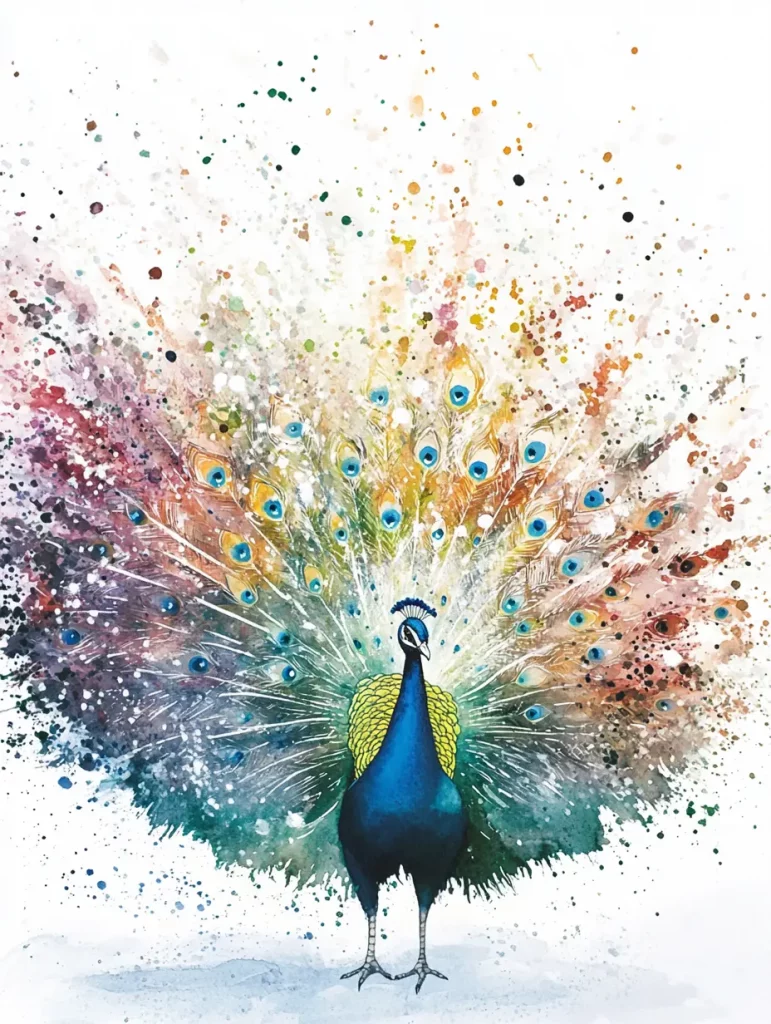
Watercolor painting of a prowling tiger with striking stripes, soft washes of color, plain white background, full body –ar 3:4 –v 6.1
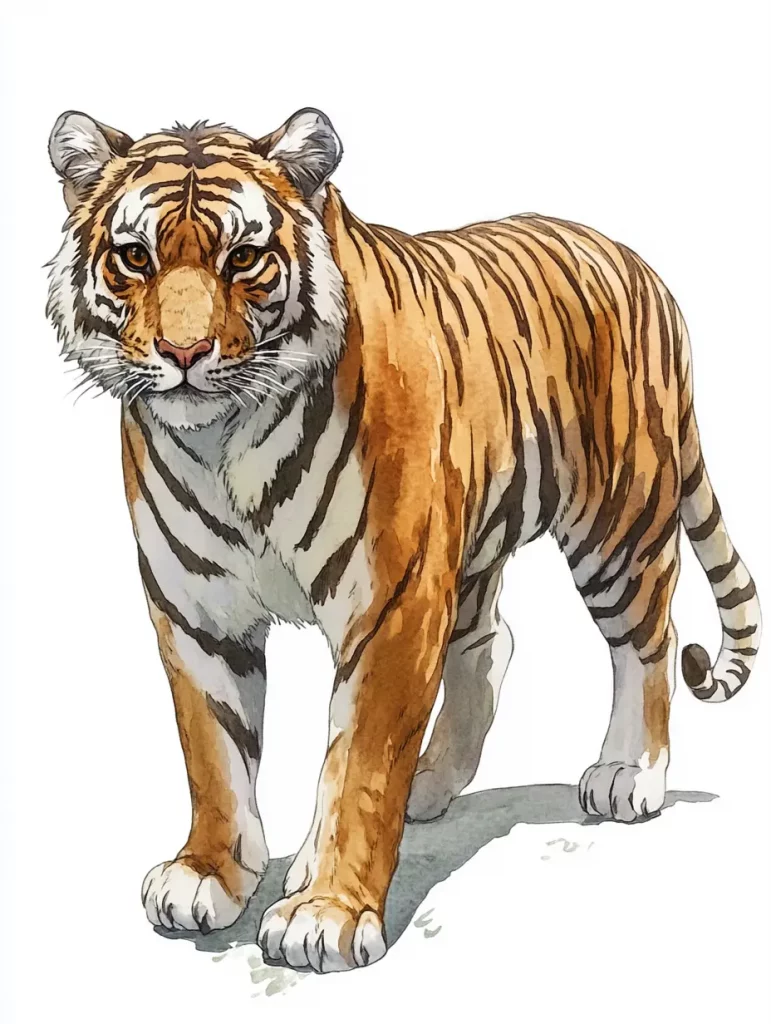
Watercolor painting of a curious red fox with a bushy tail, soft washes of color, plain white background, full body –ar 3:4 –v 6.1
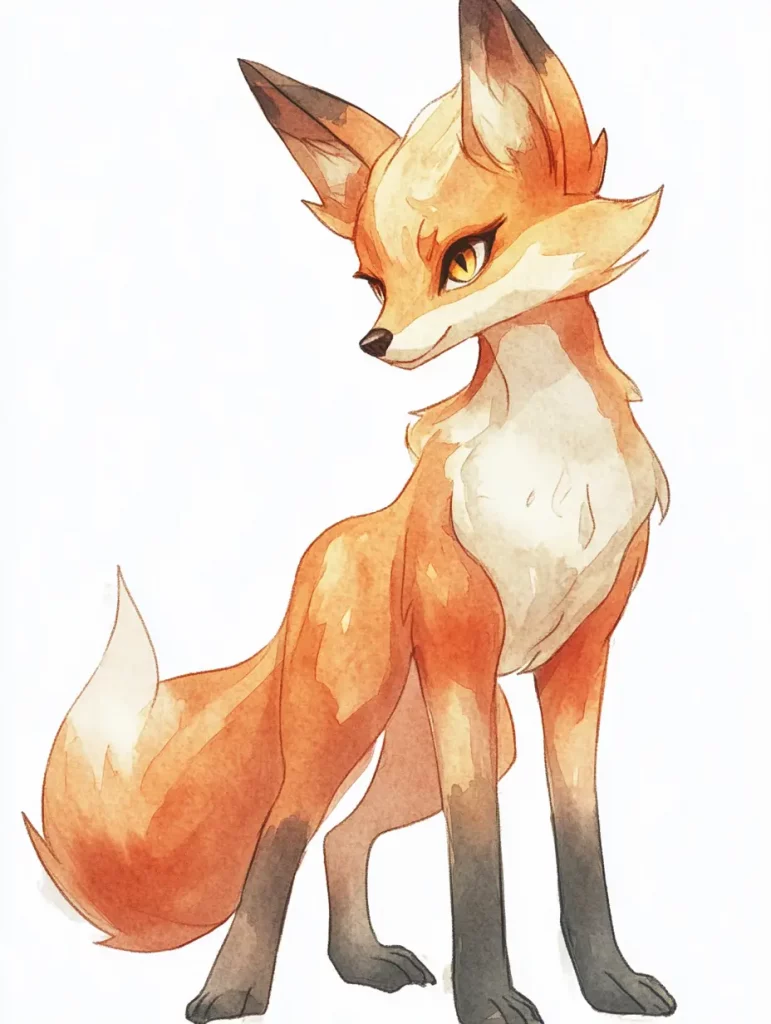
Watercolor painting of a sleepy koala with eucalyptus leaves, soft washes of color, plain white background, full body –ar 3:4 –v 6.1
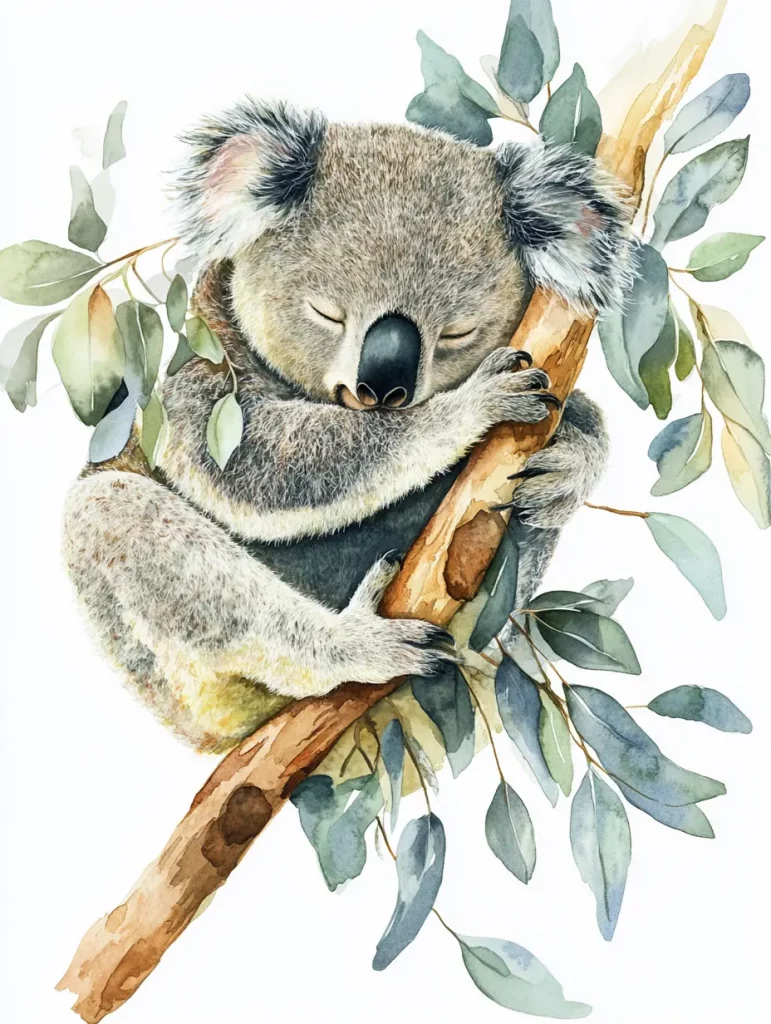
Watercolor painting of a colorful macaw with vibrant plumage, soft washes of color, plain white background, full body –ar 3:4 –v 6.1
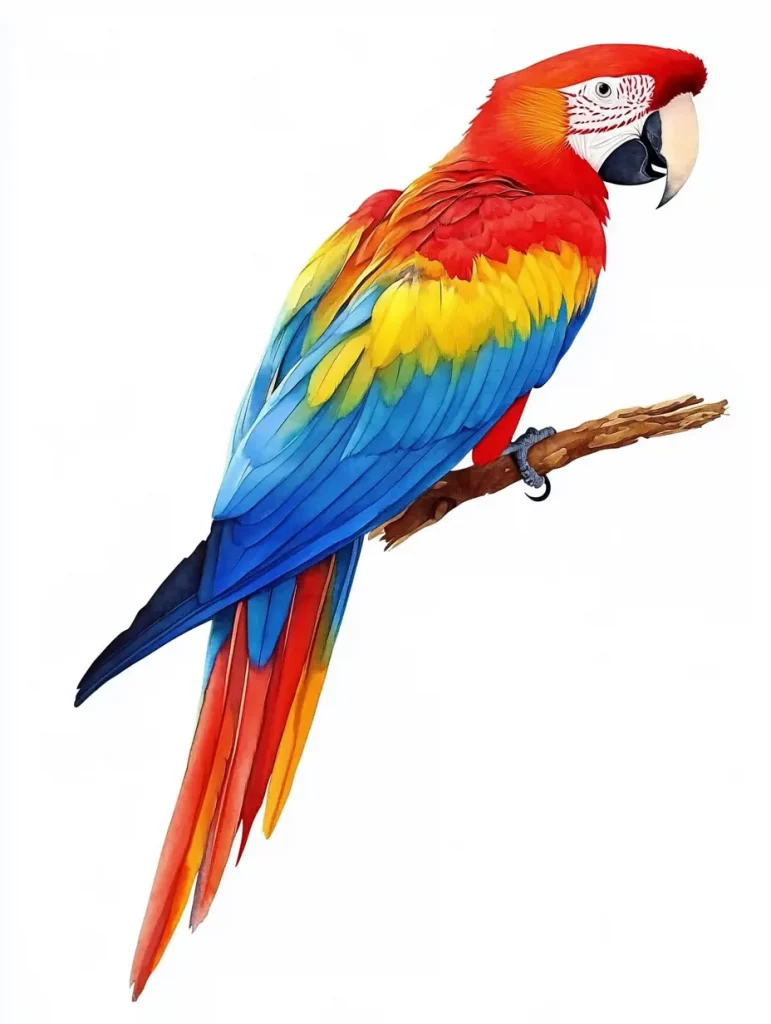
Watercolor painting of a waddling penguin with smooth feathers, soft washes of color, plain white background, full body –ar 3:4 –v 6.1
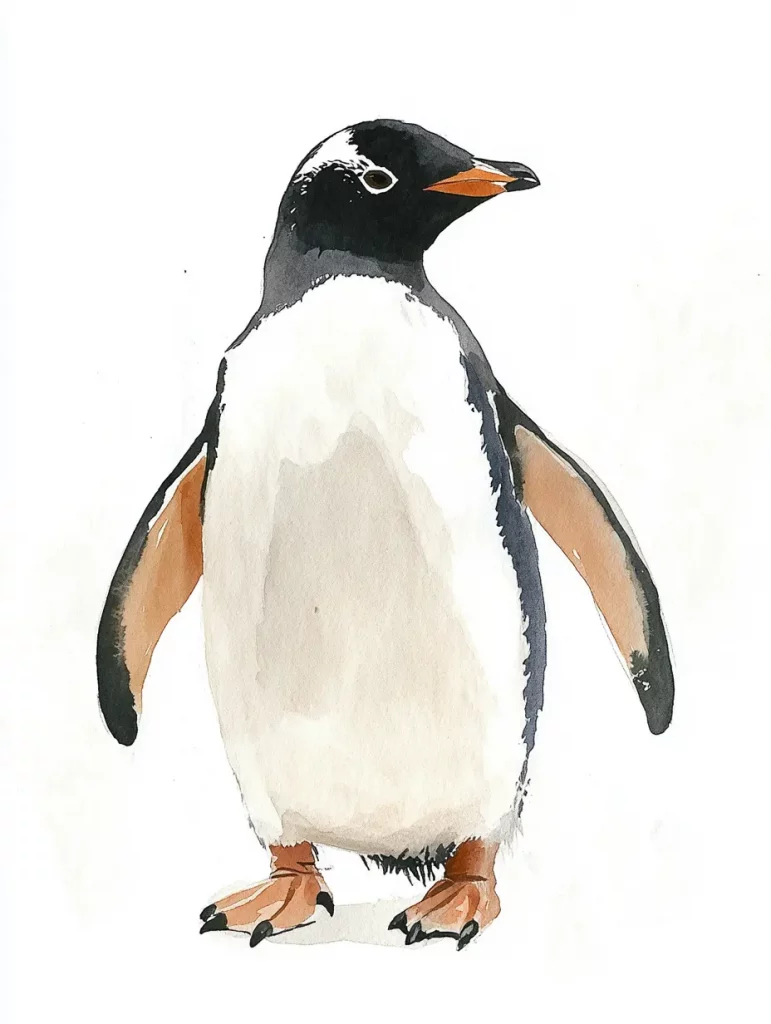
Watercolor painting of a vibrant butterfly with intricate wing patterns, soft washes of color, plain white background, full body –ar 3:4 –v 6.1
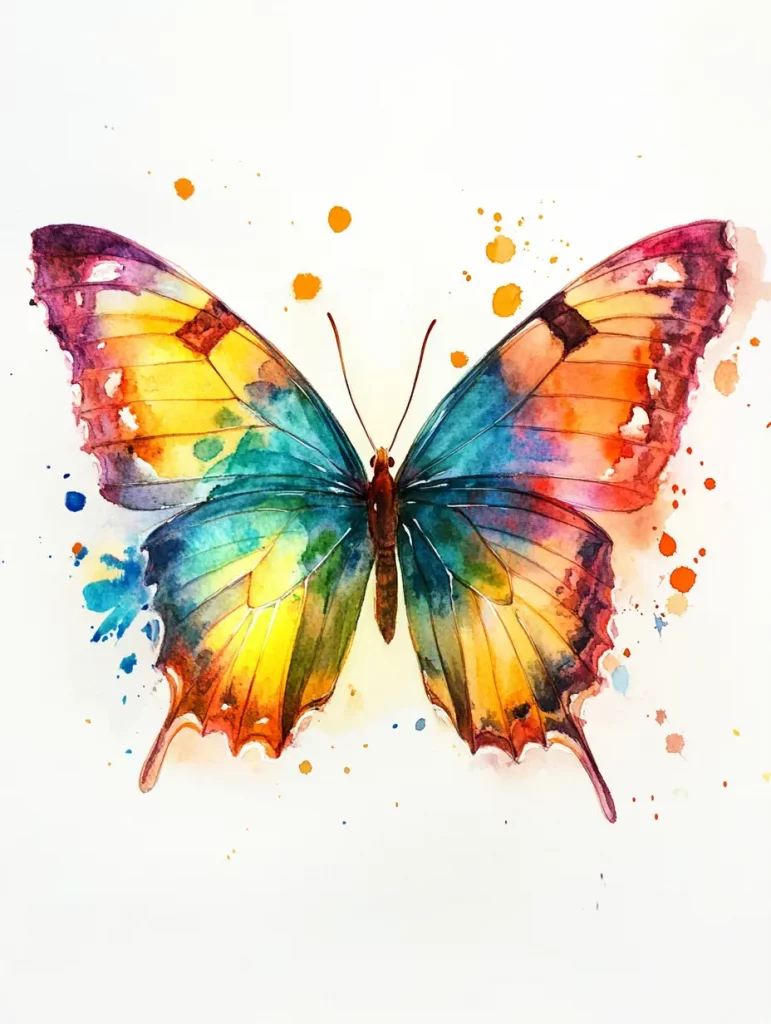
Watercolor painting of a leaping dolphin with sleek skin, soft washes of color, plain white background, full body –ar 3:4 –v 6.1
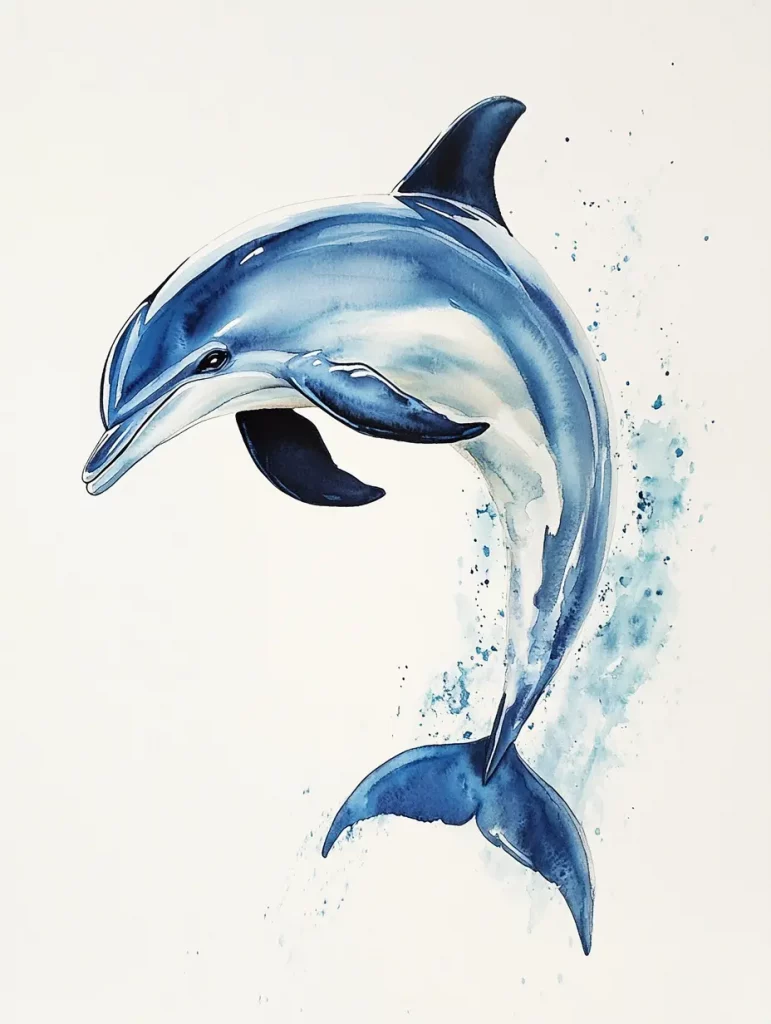
Watercolor painting of a bleating goat with a long beard, soft washes of color, plain white background, full body –ar 3:4 –v 6.1
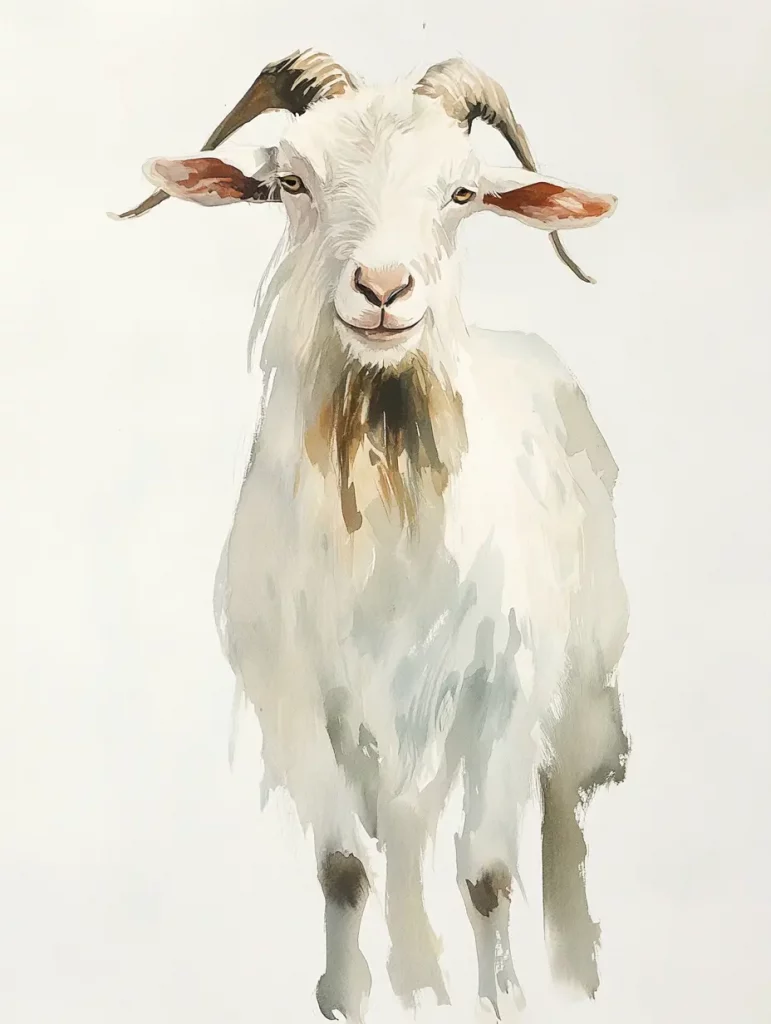
Watercolor painting of a scurrying squirrel with a bushy tail, soft washes of color, plain white background, full body –ar 3:4 –v 6.1
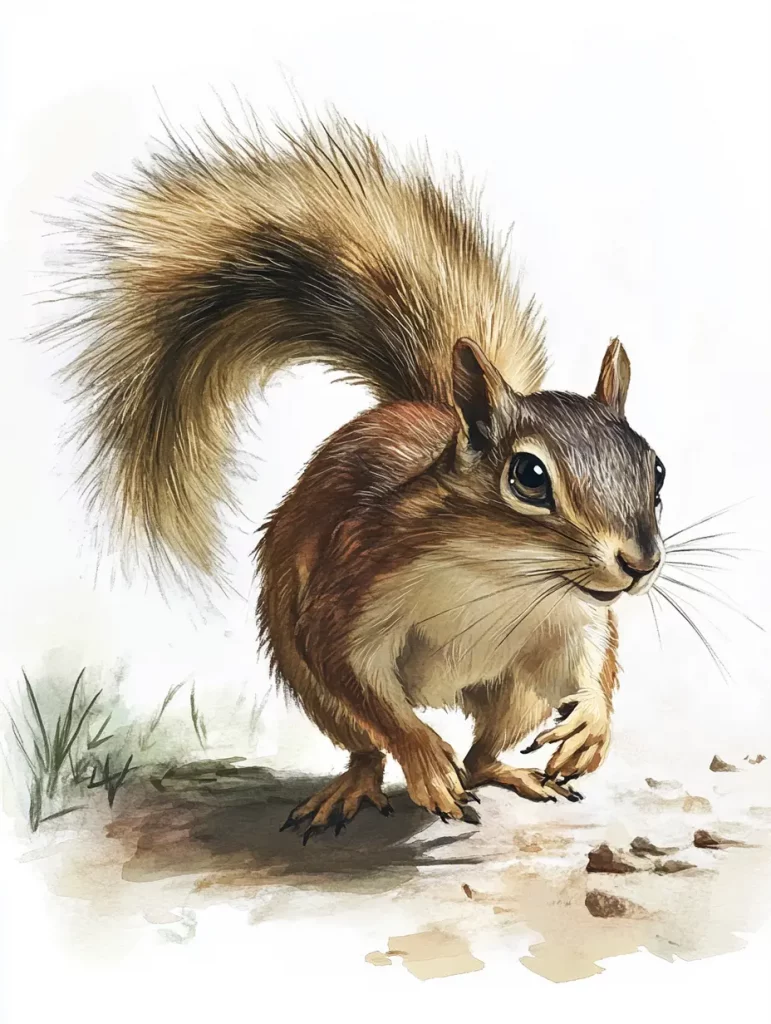
Watercolor painting of a swimming turtle with a patterned shell, soft washes of color, plain white background, full body –ar 3:4 –v 6.1
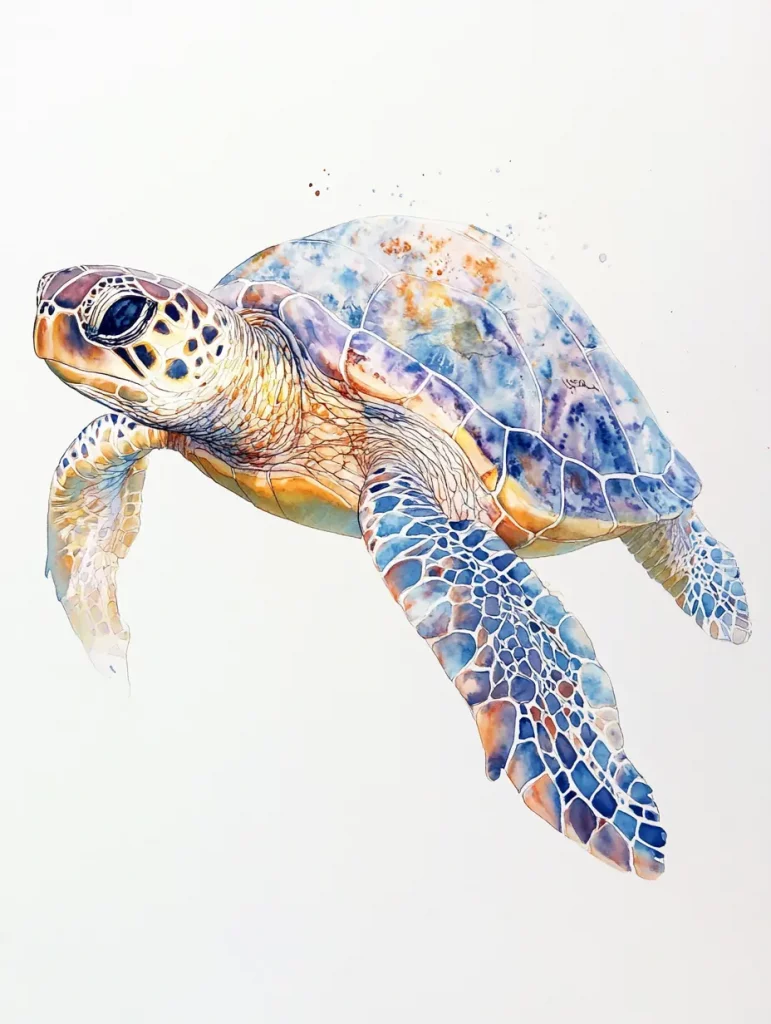
Watercolor painting of a hopping frog with bulging eyes, soft washes of color, plain white background, full body –ar 3:4 –v 6.1
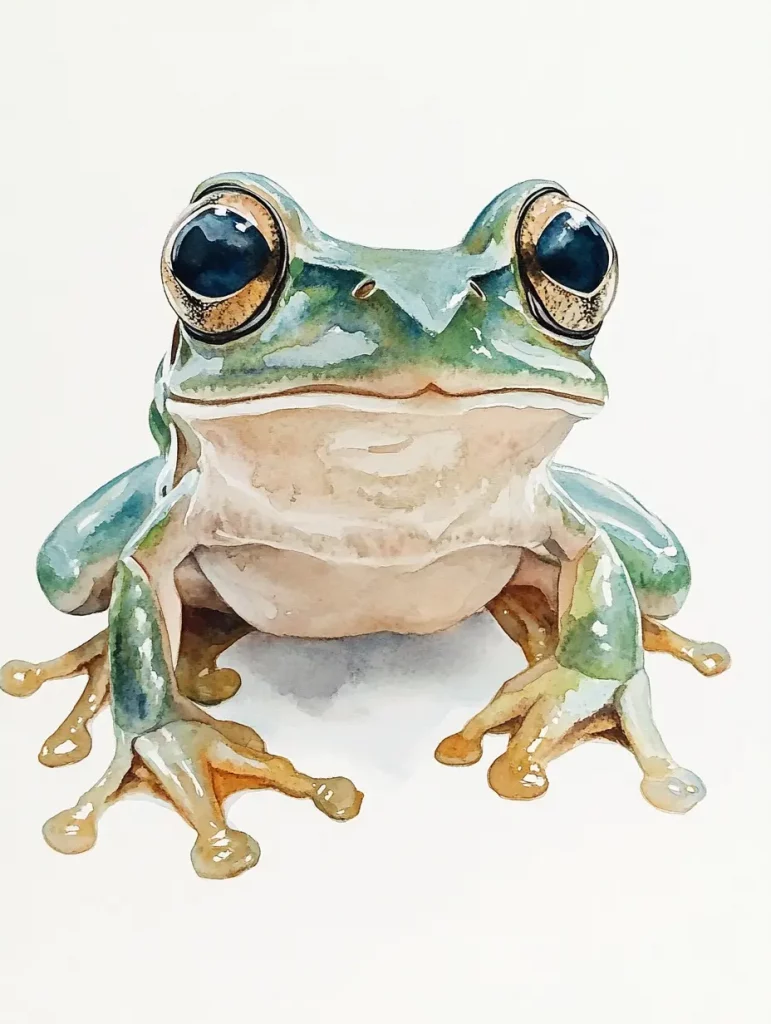
Watercolor painting of a busy ant carrying a crumb, soft washes of color, plain white background, full body –ar 3:4 –v 6.1
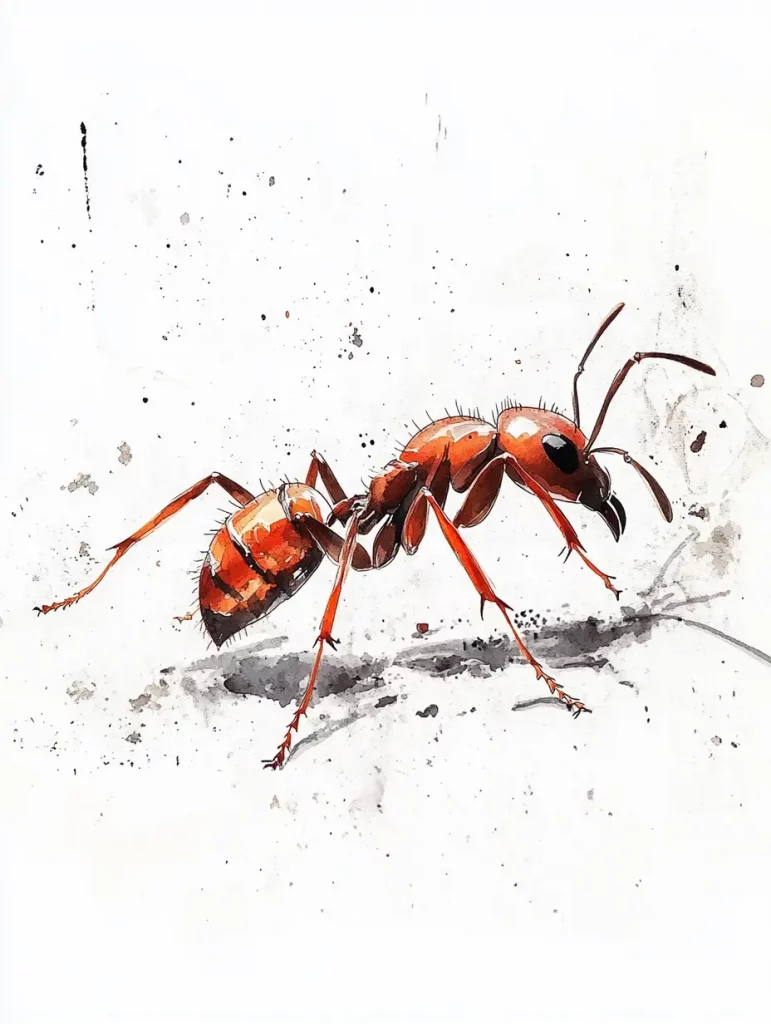
Watercolor painting of a fast cheetah with distinct spots and a lean body, soft washes of color, plain white background, full body –ar 3:4 –v 6.1
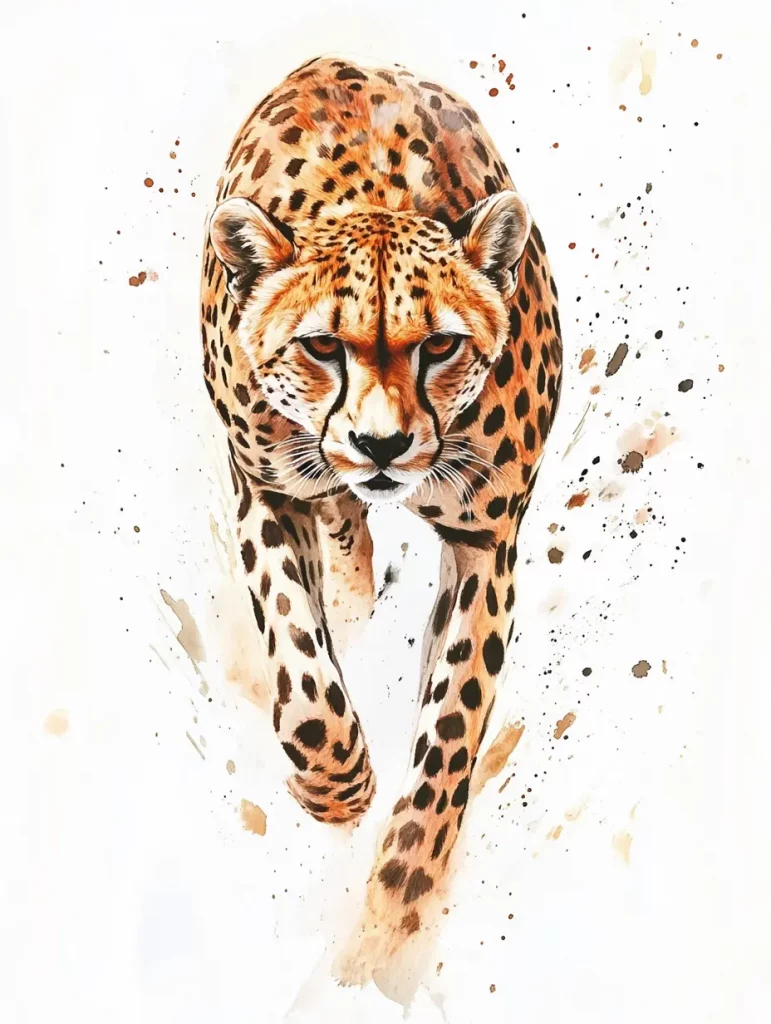
Watercolor painting of a playful puppy with floppy ears, soft washes of color, plain white background, full body –ar 3:4 –v 6.1
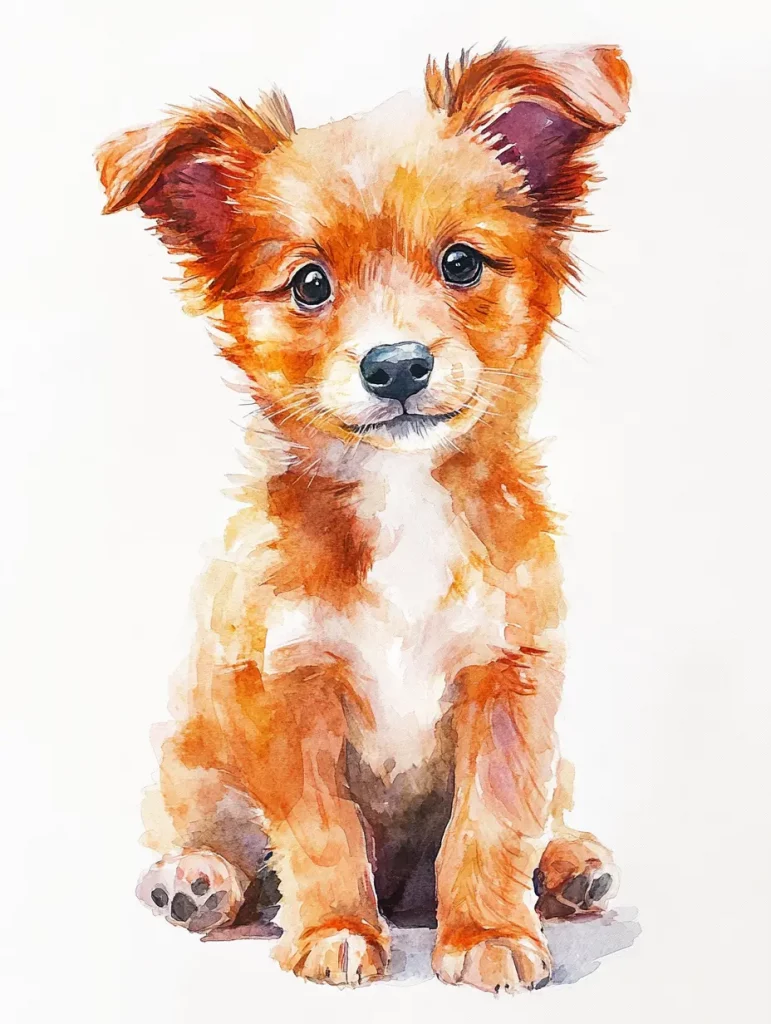
Watercolor painting of a curious kitten with bright eyes, soft washes of color, plain white background, full body –ar 3:4 –v 6.1
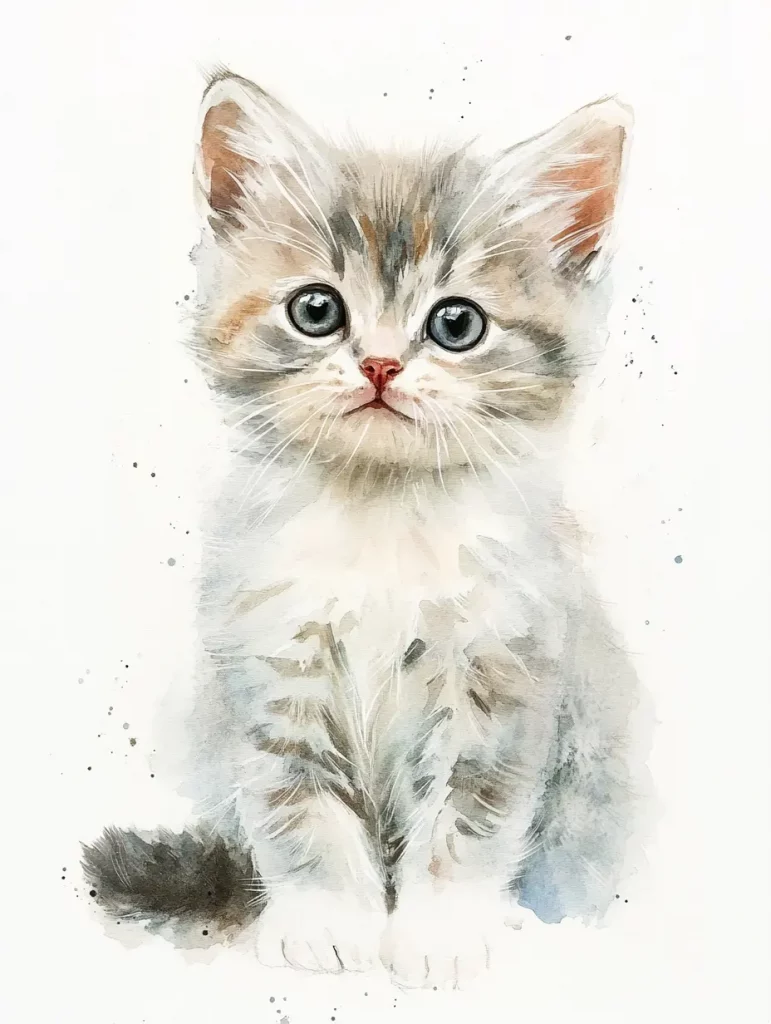
Watercolor painting of a darting hummingbird with a long beak, soft washes of color, plain white background, full body –ar 3:4 –v 6.1
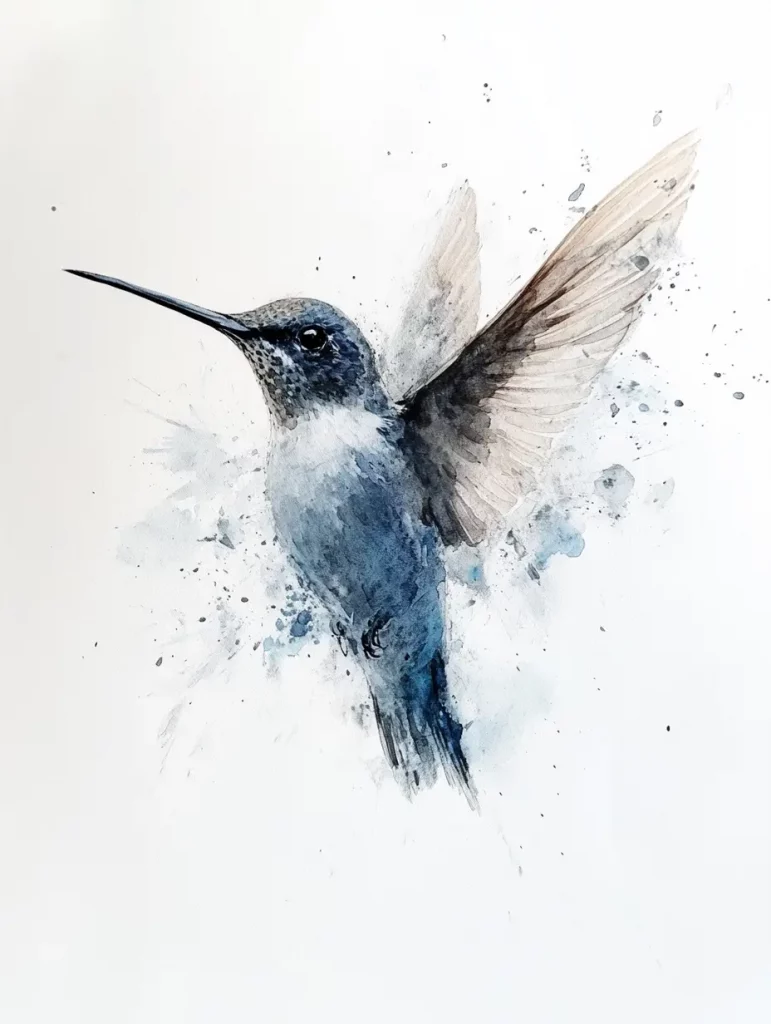
Watercolor painting of a proud peacock with a fanned tail, soft washes of color, plain white background, full body –ar 3:4 –v 6.1
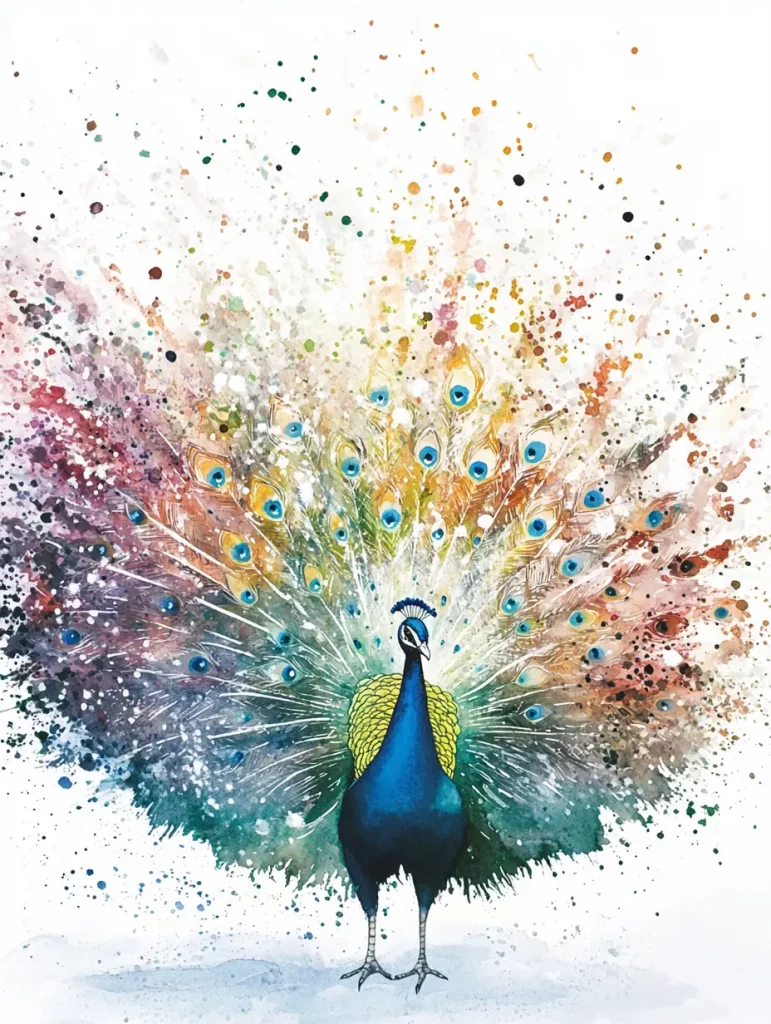
Watercolor painting of a fluffy chick with soft downy feathers, soft washes of color, plain white background, full body –ar 3:4 –v 6.1
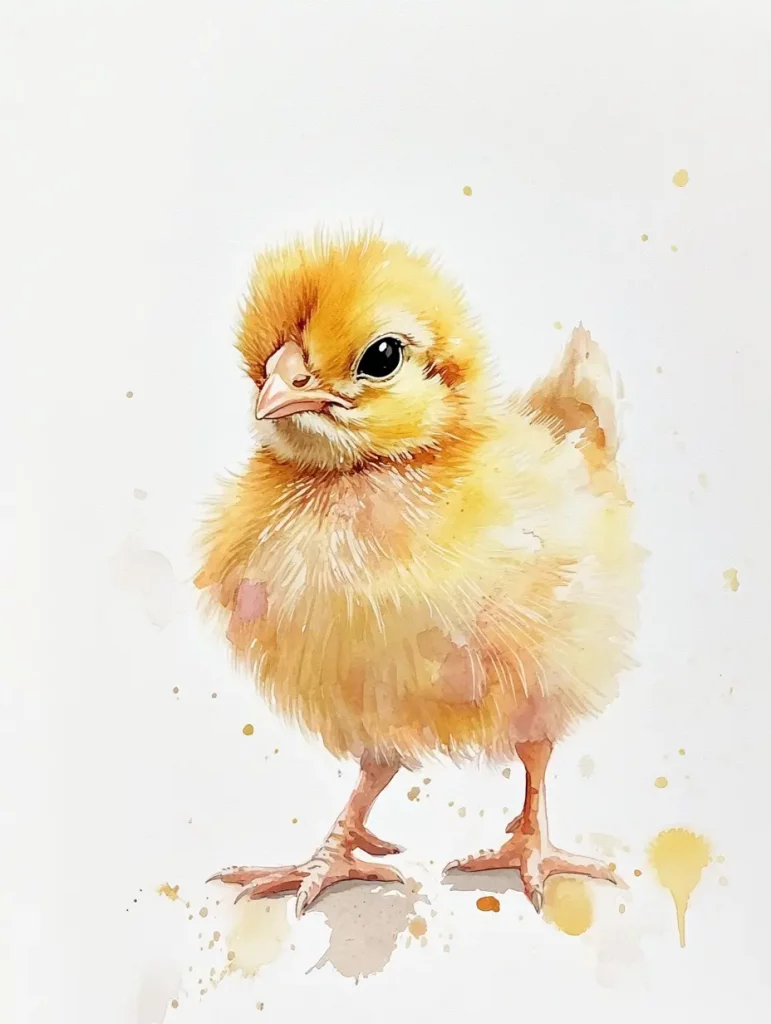
Watercolor painting of a majestic stag with impressive antlers, soft washes of color, plain white background, full body –ar 3:4 –v 6.1
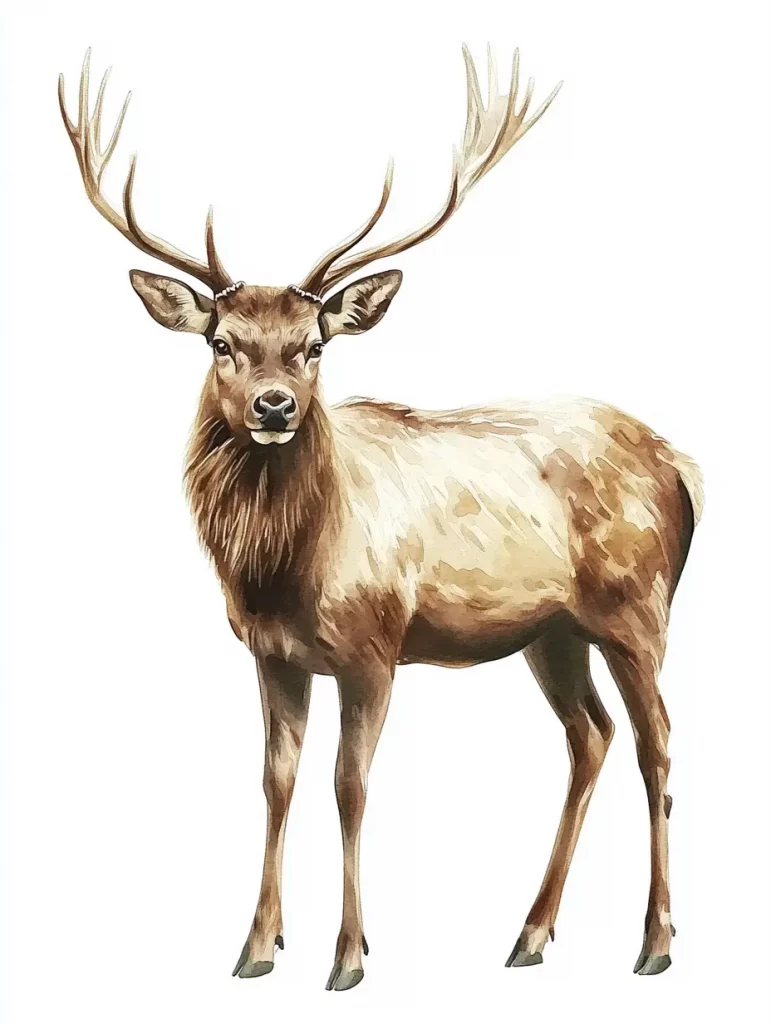
Watercolor painting of a snake with smooth scales, soft washes of color, plain white background, full body –ar 3:4 –v 6.1
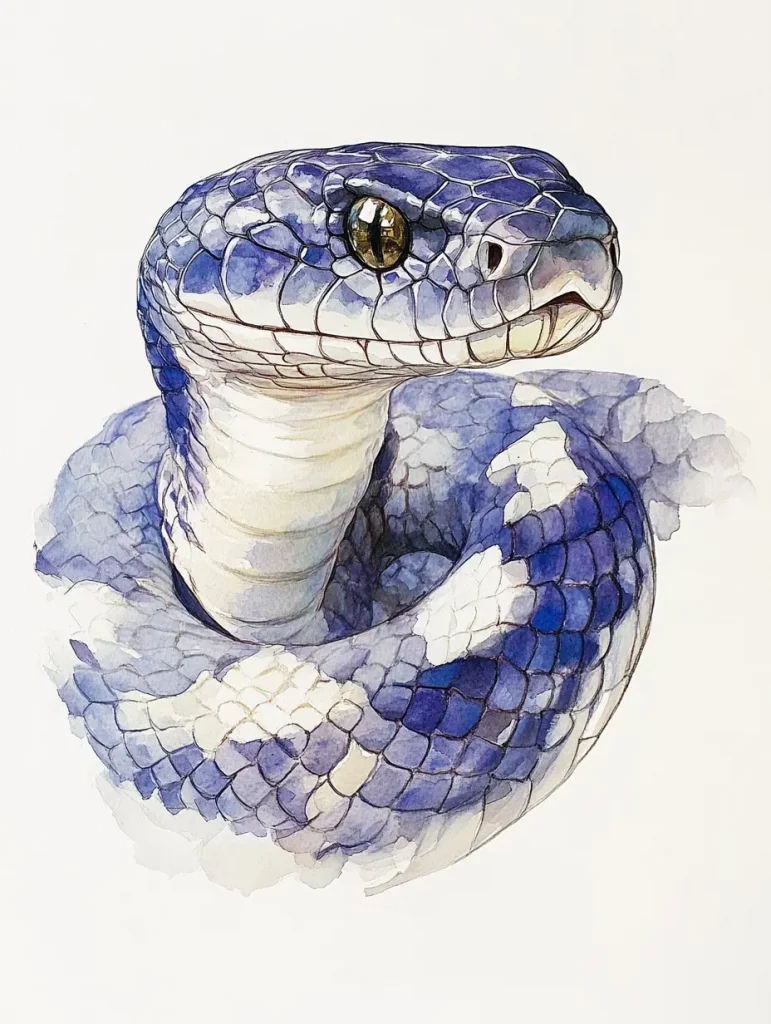
Watercolor painting of a mooing cow with gentle eyes, soft washes of color, plain white background, full body –ar 3:4 –v 6.1
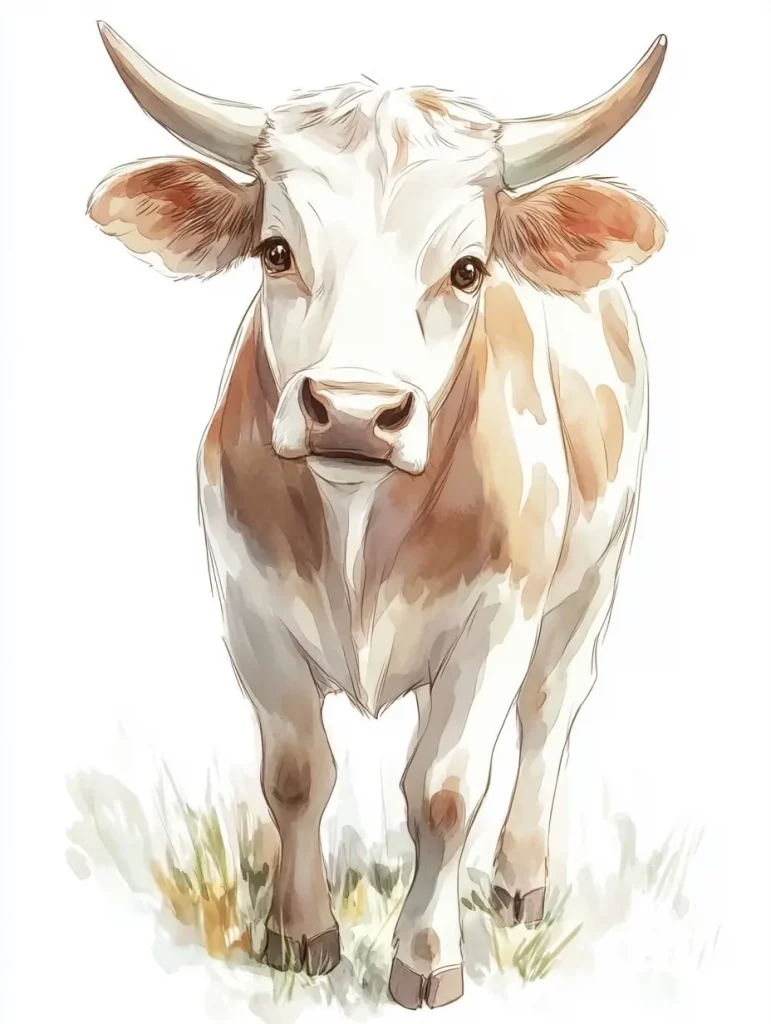
Tips to Improve Prompts
After working with these prompts, I’ve found several ways to make them even better. Here’s what works:
Add Specific Color Notes
Instead of letting Midjourney choose colors, you can guide it:
- “…with earth-toned browns and oranges”
- “…in soft pastel blues”
- “…using rich autumn colors”
Include Texture Details
Watercolor really shines when you specify textures:
- “…with feathery brush strokes”
- “…using blooming color effects”
- “…with granulated pigment texture”
Specify Watercolor Techniques
You can call out specific watercolor methods:
- “…with wet-on-wet effects”
- “…using dry brush details”
- “…with color gradients”
Refine the Pose
Make your animal’s position more specific:
- “…sitting alert with head turned slightly”
- “…viewed from a three-quarter angle”
- “…looking directly at viewer”
Add Small Details
These little touches can make your image more interesting:
- “…with water droplets on fur”
- “…with subtle shadow underneath”
- “…with whiskers catching light”
Modify the White Background
While keeping it clean, you can add subtle elements:
- “…with soft cast shadow”
- “…with minimal ground shadow”
- “…with faint reflection”
Fine tune the Mood
A few words can change the whole feeling:
- “…in morning light”
- “…with ethereal glow”
- “…in soft lighting”
Keep it simple at first. Start with the base prompt and one animal you really want to paint. Once you’re happy with those results, add one improvement at a time. This way, you’ll understand exactly how each change affects your final image.
The best part about working with Midjourney is that you can generate multiple versions quickly. If your first try isn’t quite right, small adjustments to your prompt can make a big difference.
I hope these prompts help you create the watercolor animal art you’re imagining. The combination of watercolor’s flowing nature with the personality of animals makes for truly special pieces. Have fun with it!
